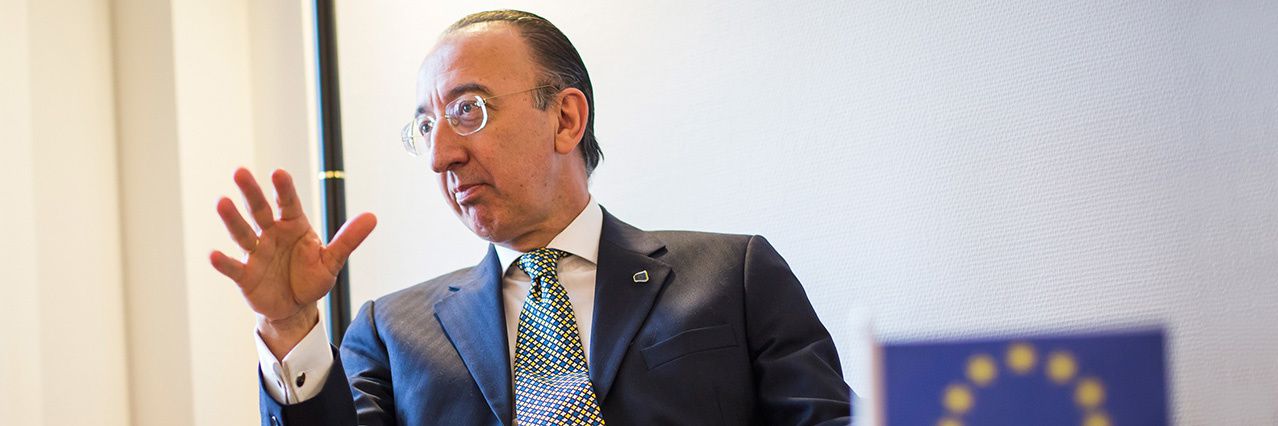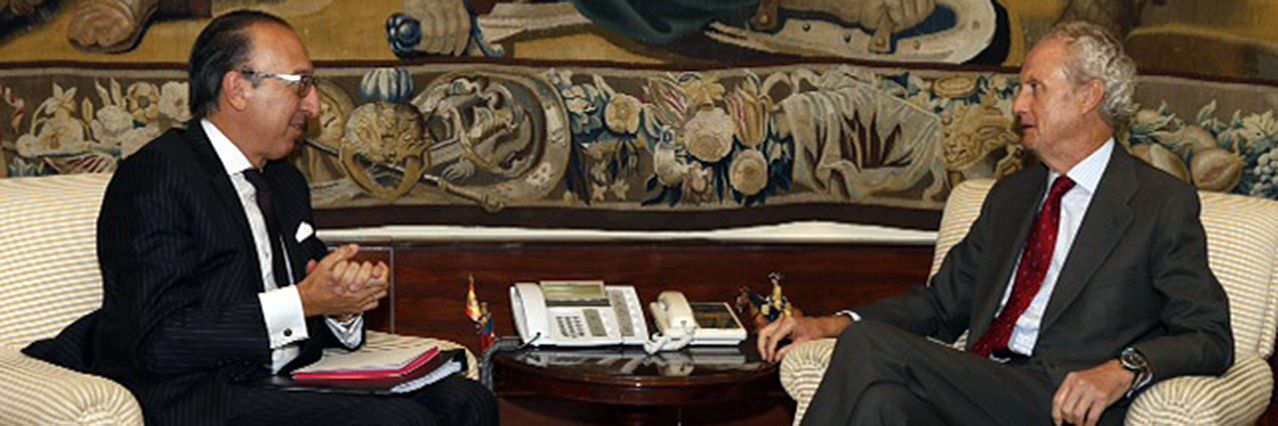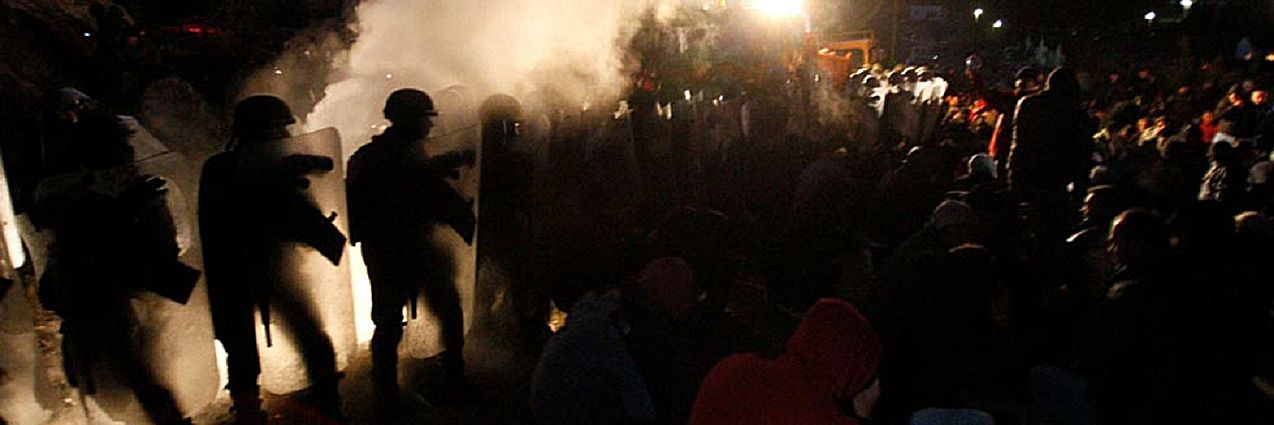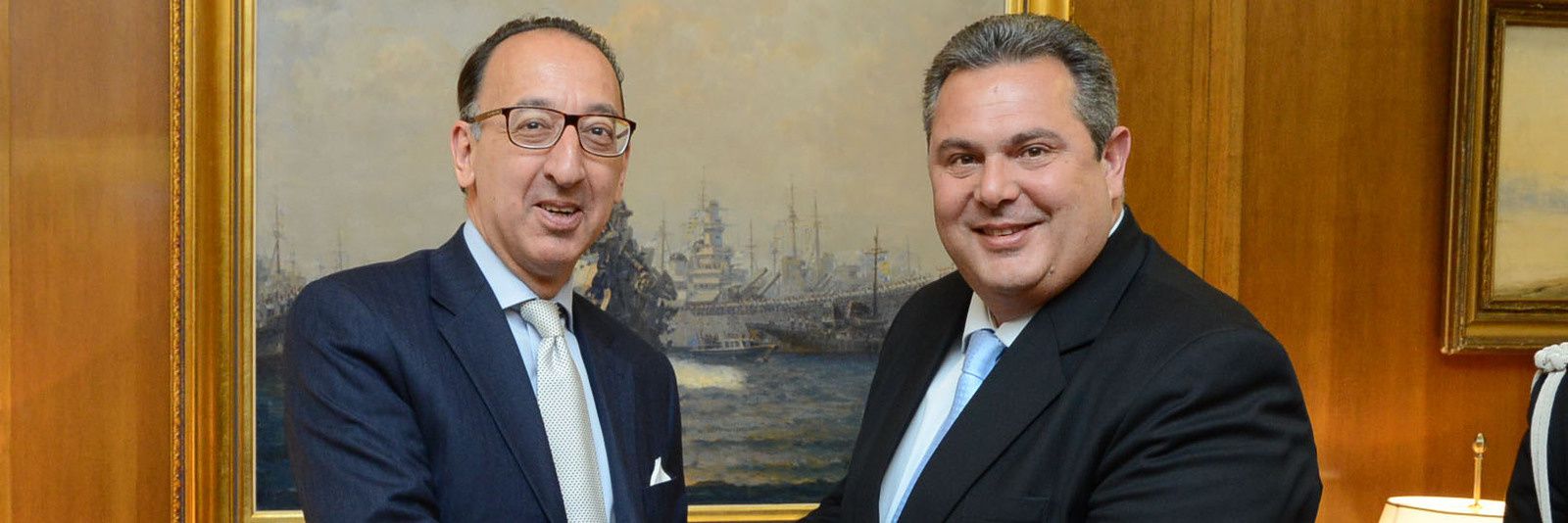"Toutes les possibilités d'établir des programmes en coopération sont le seul moyen d'intégrer l'industrie de la défense en Europe", estime le directeur exécutif de l'Agence européenne de défense, Jorge Domecq
14/09/2015 par Michel Cabirol – LaTribune.fr
Lors de l'Université d'été de la défense, qui se tient le 14 et 15 septembre à Strasbourg, le directeur exécutif de l'Agence européenne de défense, Jorge Domecq, appellera à une consolidation de l'industrie de la défense en Europe. Sinon, explique-t-il, "elle perdra des capacités industrielles et technologiques dans les cinq à dix ans".
Quelle est votre ambition pour l'Agence de défense européenne (AED)?
Depuis que je suis arrivé à la tête de l'AED, j'ai établi des priorités dans des domaines où je pense que l'Agence peut aider à bâtir une Europe de la défense, qui est inscrite dans le Traité de Lisbonne. Nous devons disposer d'instruments au sein de l'Agence pour atteindre cet objectif. J'ai donc soumis aux ministres de la Défense des pays membres un plan de travail en trois volets pour ne pas disperser les efforts de l'AED : soutenir les efforts des Etats membres dans le développement de capacités structurantes, par exemple dans la mise en place d'un programme de drone de surveillance européen ; contribuer au renforcement de la base industrielle de défense en Europe notamment à travers la Recherche et technologie, être le relais des intérêts de la communauté défense dans les enceintes européennes. Nous ne sommes qu'une petite agence de 125 personnes. Mon action, et donc mon ambition, dépend uniquement de la volonté des Etats membres. Ce sont souvent des questions de souveraineté nationale que nous traitons. Nous ne pouvons avancer qu'avec l'accord des Etats.
Quel bilan tirez-vous du sommet européen du 25 et 26 juin?
Il était important que l'Europe se rende compte qu'elle n'a plus de temps à perdre sur les questions de défense. Chaque année qui passe, se pose effectivement la question du poids de l'industrie de la défense européenne. Pourquoi ? Pour être un contributeur à un monde plus stable et un monde en paix, l'Europe doit disposer de capacités opérationnelles et donc d'une base industrielle et technologique robuste . Je voudrais insister sur un élément très important de ce sommet: l'action préparatoire en matière de recherche. La Commission Européenne, en étroite concertation avec l'Agence européenne de la défense, planifie son prochain cycle de financement de projets en recherche et développement incluant - pour la première fois - des possibilités de financement pour la recherche et technologie dans le domaine de la défense. Il s'agit d'une avancée majeure, tant pour les ministères de la défense que pour la Commission européenne. Nous commencerons des 2016 avec des projets-pilotes.
Quelles sont vos trois priorités?
Premièrement l'Agence doit se concentrer sur le développement de capacités pour la défense européenne. Et nous voulons développer des programmes en coopération structurants d'un point de vue opérationnel et industriel à la fois pour les grands et les petits pays. Par exemple, dans la lutte contre la menace initiée par les mini-drones. Sur le plan opérationnel, nous devons aider les armées européennes à disposer de capacités leur permettant d'agir ensemble si les pays le souhaitent. Sur le plan industriel, nous devons pousser à une intégration progressive des industries de défense. L'offre capacitaire est aujourd'hui trop fragmentée en Europe. Il faut harmoniser dès le départ les décisions portant sur les besoins militaires des ministères de la Défense. Cela donnerait d'abord de la visibilité aux industriels et pourrait contribuer à une intégration au moment du lancement de la production.
Sinon?
Si l'Europe perd ces capacités industrielles et technologiques dans les cinq à dix 10 ans à venir, alors son poids, comme partenaire pour d'autres pays, y compris pour nos alliés, va faiblir. L'Europe deviendra alors un contributeur secondaire. Nous avons donc besoin d'avancer dans les domaines capacitaires et d'avancer vers une plus grande intégration de l'industrie pour qu'elle soit plus compétitive et qu'elle dispose d'un poids technologique à la hauteur des futurs besoins de la défense européenne.
Peut-être pouvez-vous influer sur les priorités concernant la recherche?
C'est effectivement notre deuxième priorité. Comme l'Agence n'a ni la taille, ni les instruments régulatoires ni financiers adaptés pour mettre en route une politique industrielle commune à l'Europe, nous avons la possibilité de créer un réseau d'experts pour stimuler la recherche et de consolider les besoins de nos forces armées. C'est précisément dans les activités de recherches et d'innovations que nous pouvons arriver à une harmonisation. La politique de soutien aux PME dans le domaine de la recherche et l'innovation est aussi très importante pour essayer d'intégrer l'industrie européenne de la défense. En général, l'AED doit servir d'outil pour soutenir l'industrie européenne de la défense qui pourrait être confrontée d'ici à quelques années à de graves problèmes.
Quels sont les thèmes de recherche que l'AED souhaite développer?
Pour l'AED, il est fondamental que les efforts dans le domaine de la recherche répondent bien sûr à des améliorations technologiques. Mais ce qui est plus important, nous devons concentrer l'élan de notre industrie sur des priorités capacitaires au niveau européen. Un plan de travail, le Plan de développement des capacités (Capability Development Plan), a été adopté par les ministres de la Défense en novembre 2014. Ce sera notre guide pour les efforts dans le domaine de la recherche et des futurs programmes menés en coopération, que ce soit sur une base multilatérale, ou dans le cadre de l'AED.
Et votre troisième priorité?
Nous devons nous assurer que les politiques générales mises en place par l'Union européenne dans différents domaines n'ont pas d'impact sur les politiques de défense. Par exemple, le programme européen « Ciel ouvert » avec son pilier technologique SESAR a un impact important sur les capacités des forces aériennes européennes, qui disposent in fine de la plus grande flotte européenne. En Europe, il y a 150.000 vols militaires par an effectués par plus de 9.500 avions. L'AED a été désignée par les ministères de la défense pour représenter les intérêts militaires auprès de la Commission européenne. Nous jouons un peu le rôle de sentinelle de la défense dans les politiques européennes en général. En même temps, l'Agence travaille sur des projets qui vont permettre aux forces aériennes d'accéder à des financements de l'Union européenne pour intégrer des adaptations technologiques sur tous les appareils de contrôle de l'espace aérien dans les années à venir.
L'Europe ne devrait-elle pas avoir une défense commune, les menaces étant en grande partie communes à tous les pays européens?
Absolument. Les menaces actuelles au sud et à l'est de l'Europe impliquent une mise en commun des moyens européens. Mais pas seulement. Avec la crise économique actuelle, le mot d'ordre doit être la coopération dans le secteur de la défense. Cela devrait être un must. Au contraire, aujourd'hui seulement 8% des dépenses R&T de défense en Europe sont consacrés à des programmes en coopération. Il faut absolument avancer dans la coopération entre Européens. Mais peut-être pas à 28 sur tous les dossiers. Nous n'avons plus le choix même si nous retardons encore les décisions. Les pays européens doivent dépenser plus efficacement qu'aujourd'hui leurs ressources dédiées à la défense. Par exemple, l'Europe ne peut pas dépenser la moitié de l'argent que les États-Unis mettent chaque année dans la défense et n'obtenir que 15% de leurs résultats en terme de restitution opérationnelle.
Quelles économies pourraient faire les ministères de la Défense?
On peut se demander si effectivement il est raisonnable que les ministères de la Défense consacrent 50% des dépenses de défense en Europe aux salaires des personnels au moment où les Etats réinvestissent dans leurs capacités de défense. Déjà 16 pays de l'OTAN, dont douze pays de l'Union européenne, ont décidé d'augmenter leurs dépenses de défense C'est très important que des pays arrêtent de couper leurs dépenses de défense. Il faut que cet argent soit dépensé de façon plus efficace. Notamment qu'il bénéficie à des efforts de recherche menés en commun, ou à des programmes en coopération dans le domaine de l'armement.
Mais les programmes en coopération coûtent en général plus cher que les programmes nationaux...
... Pas dans tous les cas. Il est clair que nous avons eu des mauvaises expériences dans le domaine de la coopération dans le passé. Tout le monde a en tête des programmes qui ont coûté beaucoup plus cher qu'initialement prévu, y compris parce que la l'architecture mise en place pour mener à bien ces programmes n'était pas appropriée ; et aussi parce que les Etats ne sont pas parvenus à harmoniser leurs spécifications. C'est le cas sur l'hélicoptère de transport, le NH90. Mais il faut se demander si c'est raisonnable et soutenable de maintenir encore 14 types de chars de combat et 19 véhicules blindés en Europe. La coopération est vraiment nécessaire.
Comment pouvez-vous réduire les surcoûts des programmes en coopération?
Le travail de l'Agence est d'identifier les besoins capacitaires très tôt et de tenter rallier le plus grand nombre de pays sur un programme avant même que la chaine de décision au niveau national commence à bouger. Dès qu'il y a des intérêts nationaux et industriels, il est beaucoup plus difficile de faire travailler ensemble des pays sur un programme. C'est pour cela que qu'il est très important de commencer à faire bouger les lignes avec la recherche. Nous devons absolument faire ce travail sur les lacunes capacitaires européennes déjà identifiées.
Et concrètement?
Sur les futurs programmes en coopération, nous devons agir différemment. Premièrement, nous devons harmoniser les besoins militaires très tôt et, ensuite, laisser l'industrie exécuter le programme sans aucune intervention des Etats. Deuxièmement, il faut absolument réduire les temps de prise de décision dans les pays membres. Cela prend trop longtemps et, parfois, les capacités arrivent en retard. Ce sont deux axes de travail sur lesquels l'Agence va se concentrer. Nous devons nous inspirer des industries les plus novatrices dans le domaine civil.
L'AED pourrait-elle lancer le futur système aérien de combat piloté ou pas?
Cela pourrait être un programme structurant. En tout cas, l'Agence est là si les pays membres souhaitent profiter de ce cadre. D'autant que l'Agence agit à la carte. Il n'y a aucun problème de lancer un programme avec deux pays ou plusieurs. Nous travaillons à la mise en place d'incitations fiscales pour favoriser les coopérations. C'est également un axe de travail très important.
Quel est le niveau d'adhésion des pays européens à une Europe de la Défense ? Existe-t-il vraiment une adhésion collective, notamment des pays appartenant à l'OTAN?
J'aimerais que les Etats membres utilisent plus l'Agence qu'ils ne l'utilisent aujourd'hui. Il faut avancer à la carte. L'AED a le potentiel pour faire plus en matière d'Europe de la défense mais il faut que les Etats viennent à l'Agence avec des programmes qu'ils veulent mener en coopération. Et cela ne concerne pas seulement les pays appartenant à l'OTAN. Car des pays qui ont foi en l'Europe de la défense n'utilisent pas l'Agence au maximum. J'aimerais que cela change.
Même le concept de "pooling and sharing" n'a pas véritablement explosé...
... L'idée de "pooling sharing" est encore là. Mais ce concept est arrivé au moment où les budgets de défense étaient réduits. En réaction, les pays ont renationalisé leur approche de la défense pour sauver des emplois. Mais nous avons eu des réalisations intéressantes dans le domaine de l'entrainement par exemple. Même les pays les plus eurosceptiques participent à des programmes dans le domaine des hélicoptères, des avions de transport. Des programmes qui représentent une vraie possibilité pour mieux utiliser les moyens réduits dont l'Europe dispose.
En clair, vous défendez une politique des petits pas.
Peut-être mais cette initiative va déboucher dans deux ou trois ans sur la création de groupes d'utilisateurs (« users groups »). Des pays, qui ont une même capacité, pourraient décider de se regrouper en matière d'appui logistique, d'entretien, de pièces détachées. Ce qui leurs ferait faire des économies. C'est le futur pour beaucoup de pays. Et je crois, même si c'est une question très sensible, à une spécialisation du travail dans le domaine de la défense. De facto, cela est déjà en train de se produire. Il y a beaucoup de taches que des pays ne peuvent plus se permettre de continuer à faire. Par exemple, des pays n'ont plus de capacités dans la lutte contre les mines. Ils confient cette mission à un autre partenaire ou à un allié. Cette division du travail existe déjà dans les pays du Benelux.
Et que pensez-vous des pays qui achètent du matériel américain?
J'ai un message pour ces Etats. Dans les pays qui sont en train d'augmenter leurs dépenses de défense, je souligne la responsabilité des gouvernements dans le processus d'intégration de leur industrie dans l'industrie européenne de défense. Ils ont la possibilité avec les systèmes de défense du futur d'établir une base technologique dans leur pays. J'attends qu'ils prennent une décision dans ce sens. C'est à eux de décider quel est le meilleur chemin pour disposer à l'avenir d'une base industrielle dans leur pays.
Prenons l'exemple de la Pologne qui a le choix d'acheter du matériel américain ou de profiter d'offres de transferts de technologies importants de la part de l'industrie européenne.
Au-delà de ces achats de court terme, je pense que le point le plus important, dans le cas de la Pologne ou d'autres pays, est d'identifier des programmes de coopération pour produire les prochains systèmes dont nous aurons besoin. Il faut commencer maintenant car les systèmes dont les militaires vont avoir besoin devront livrer dans cinq à dix ans. La Pologne doit prendre ces décisions maintenant. Par exemple, nous devons penser à produire la troisième génération de chars de combat en Europe. Faisons-le ensemble et pas chacun dans son coin.
Justement le rapprochement entre Nexter et Krauss-Maffei Wegmann n'est-elle pas une bonne base de travail?
Toutes les possibilités d'établir des programmes en coopération sont le seul moyen d'intégrer l'industrie de la défense en Europe.
Vous avez beaucoup évoqué une intégration industrielle européenne. Pourquoi ne pas consolider l'AED, l'OCCAR et la NSPA (Nato Support and Procurement Agency)?
La défense est un domaine très complexe... Et chaque pays a ses arrière-pensées et ses difficultés théologiques qu'il faut respecter. Il faut jouer avec les équipes que l'on a.
Mais mettre la préparation de l'avenir, l'exécution des programmes et leur entretien ne serait-il pas logique?
Bien sûr mais la logique politique n'a pas toujours l'obligation de suivre la logique matérielle.
Aujourd'hui comment l'AED et l'OCCAR coopèrent?
La relation est très bonne. Nous avons les idées très claires sur ce que nous devons faire à l'AED et à l'OCCAR. Et je peux vous citer un exemple - l'acquisition d'une flotte d'avions ravitailleurs pour la Pologne, les Pays-Bas et la Norvège - où notre coopération a été efficace. L'AED a déterminé les besoins militaires et le business case. Puis l'OCCAR va s'occuper de la procédure d'achat des avions. Et enfin, l'entretien des appareils sera confié à une agence de l'OTAN, la Nato Support and procurement agency (NSPA). Dans ce cas, il y a eu une division du travail. Par ailleurs, l'AED travaille à convaincre d'autres pays à se joindre à ce programme. D'ici à la fin de l'année, au moins deux autres pays devraient rejoindre le programme.





























